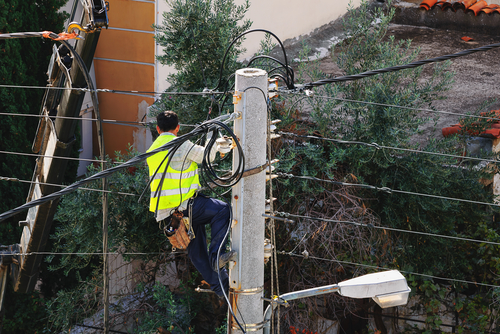
Maine Voters Reject Expensive, Intrusive ‘Clean Energy Connect’ Program
This month’s elections were notable for voters around the country rejecting a number of liberal priorities, including on energy. This is what happened in Maine, where voters rejected a massive extension of transmission lines across their state so that Canadian hydropower could be delivered to customers in Massachusetts. The $1 billion-dollar New England Clean Energy Connect project would have added 145 miles of transmission lines throughout Maine.
Author Robert Bryce wrote about the implications of this vote for Forbes:
…the rejection of the project by Maine voters shows that the all-renewable scenarios that have been published over the past few years by academics from elite universities like Princeton, Stanford, and Cal-Berkeley – all of which depend on massive buildouts of high-voltage transmission capacity – are simply not feasible. The best wind, solar, and hydropower resources are in rural areas where electricity use is low. Moving power from those remote sites to cities requires long transmission lines. The more renewable-energy capacity gets added to the grid, the more transmission capacity must be built. And the more transmission lines get built, the more rural Americans will stand opposed.
The incredible amount of high-voltage transmission lines required for renewables like solar and wind is the ‘fine print’ that comes with renewable energy, and something most academics and activists avoid talking about.
Converting the domestic electric grid to run primarily on renewables will require mind-boggling amounts of new transmission capacity. In 2012, the National Renewable Energy Laboratory estimated that if the U.S. were to attempt to derive 90% of its electricity from renewable sources, it would have to roughly double its high-voltage transmission capacity. The US now has about 240,000 miles of high-voltage transmission lines.
Put another way, to convert the electric grid to 90% renewables would require enough high-voltage transmission to circle the Earth about 10 times. That’s a lot of wire.
Most rural Americans don’t want massive transmission lines in their backyards, and without their support, these projects just aren’t going to happen. Furthermore, environmental activists should have a good understanding of this point of view. For decades, they have rallied land and business owners to oppose oil and gas pipelines in their own communities. Now, they want these communities to support expensive and intrusive high-voltage transmission lines? It should come as little surprise that they won’t.
November 16, 2021